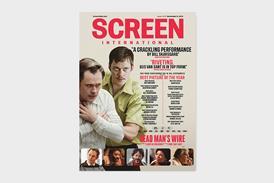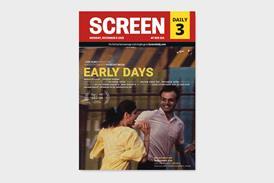With screen space so tight for foreign-language, arthouse and specialised fare, the UK independents are stepping up their game when promoting their product. Geoffrey Macnab reports
Distributors argue it is more difficult than ever to release arthouse and foreign-language films into the UK market.
Xavier Marchand, president of worldwide distribution at Alliance Films and managing director of Momentum Pictures, notes that when UGC was a major player in UK exhibition ‹ before exiting in late 2004 ‹ its programming philosophy was ³adventurous and open². Now, with multiplex screens more difficult to access, even Œhits¹ such as The Girl With The Dragon Tattoo, La Vie En Rose and Coco Before Chanel are unlikely to make more than $3.9m
(£2.5m) at the UK box office. With the likely disappearance of public support for p&a costs (which distributors were able to apply for through the UK Film Council¹s P&A Fund), handling foreign/arthouse films will not become any easier.
Imaginative response
Screen space is difficult to come by. A dozen or more theatrical titles ‹ including several foreign-language films ‹ can be released in the UK every week. With so many titles competing for so few slots, exhibitors are ruthless about pulling films that do not make an immediate box-office impact. The much-vaunted Digital Screen Network, launched by the UKFC in 2005, has not yet provided distributors with the flexibility in booking arrangements or the cut in costs that was anticipated.
In response, however, distributors are becoming ever more imaginative about how they release and market their films. Whether it was Revolver¹s launch of The Infidel at the Hammersmith Apollo, with a host of comedians and performers in tow, Soda Pictures¹ touring programme, New British Cinema Quarterly, or the event launches that have been given to music films such as Oil City Confidential, distributors have come up with a host of new ways to generate buzz about their movies.
At the same time, the lines between arthouse and foreign language are blurring. Distributors tend to have very varied slates. Revolver, for example, releases everything from UK youth-oriented fare ‹ some of it produced through its new production arm Gunslinger ‹ to traditional foreign-language film. ³Everyone ‹ and that includes the studios ‹ has a little bit of everything in their slate,² says Revolver¹s managing director Justin Marciano.
Fox, for example, released My Name Is Khan in the UK in February, where it grossed $4.3m (£2.7m). ³Although Bollywood is huge in the UK, if you¹re not into it, you just don¹t see it,² says Kate Gardiner, head of Fox Searchlight UK. ³What we could bring to [the release] was the expertise we had from working on bigger American and British films to give it that extra sheen and gloss, and make it that much bigger.² Optimum Releasing CEO Danny Perkins adds: ³All the companies are focused on the audience, whether it¹s a traditional arthouse film with a theatrical audience or a bigger budget action-oriented film with a stronger video audience.² Icon Film Distribution made around $5.1m (£3.3m) theatrically in the UK from Tom Ford¹s A Single Man, a title that would traditionally have been seen as strictly arthouse fare. ³That¹s a phenomenal result. Having bought it projecting we might get it to $2.3m (£1.5m), we¹ve more than doubled that,² notes Hugo Grumbar, president of Icon Film Distribution.
Case study: Coco Before Chanel
Coco Before Chanel was acquired by Optimum from Warner Bros at a very early script stage, with Optimum¹s then managing director Will Clarke recognising its crossover potential from the outset.
Optimum¹s current CEO Danny Perkins notes: ³You¹re looking at the elements of the film that will appeal to the broadest audience possible. Here you have the Chanel brand.² Optimum¹s head of marketing, Hugh Spearing, says the company worked closely with Chanel in the run-up to the release in the summer of 2009. Optimum aimed at the Sex And The City audience, with editorial in magazines such as Grazia, Heat and Vogue which emphasised the glamour. TV advertising highlighted the sophistication of the film without foregrounding the foreign language. With support from UKFC¹s P&A Fund, the film went out on around 90 prints.
Coco Before Chanel became the highest-grossing foreign-language film of 2009, making more than $3.9m (£2.5m) at the UK box office.
Case study: heartbreaker
Revolver pre-bought French romantic comedy Heartbreaker at script stage from Kinology at last year¹s American Film Market. Revolver managing director Justin Marciano says the company felt at the outset the film, starring Romain Duris and Vanessa Paradis, had the potential to reach beyond a traditional arthouse title.
³We really got behind it. It was something we were trying to sell as a mainstream movie rather than a classic arthouse movie,² he says of Heartbreaker, which was released on around 70 sites in early July with the football World Cup still underway.
The campaign focused on print and online and highlighted the summer elements and the romance. ³It was a very visual, eye-catching campaign,² says Marciano. ³There was so much support from the female press ‹ everything from Vogue to Heat.² The film went on to take $1.1m (£700,000) in UK cinemas.





















No comments yet